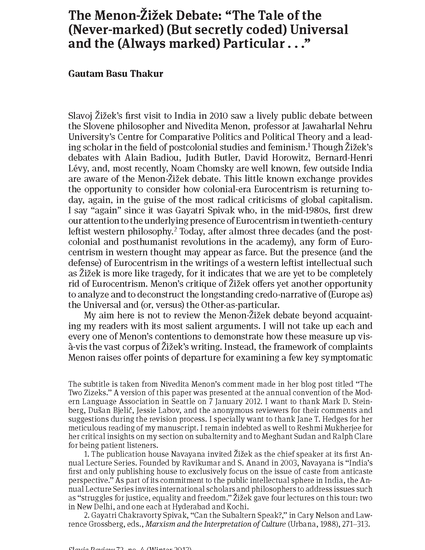
On occasion of his first lecture tour of India in 2010, Žižek sparked off a debate with Nivedita Menon, a leading postcolonial feminist scholar. The debate revolves around Menon's contention that Žižek's emphasis on European, Christian Universalism as the most proactive model for countering capitalism is ignorant of the heteroglossiac postcolonial histories of South Asia. Menon's response (“The Two Žižeks”) suggests that what Žižek appears to be missing is knowledge of the fallibility of Eurocentric discourses in negotiating the colonial and postcolonial situations particular to the subcontinent. Though Žižek's debates with Badiou and Butler are well known, few outside India are aware of the Menon-Žižek debate. This paper will occasion this little known debate to consider some of the major points raised by Menon against the applicability of Žižek's theoretical arguments toward reading and understanding postcolonial politics and culture.
This document was originally published by Association for Slavic, East European, and Eurasian Studies in Slavic Review. Copyright restrictions may apply. DOI: 10.5612/slavicreview.72.4.0750
Available at: http://works.bepress.com/gautam_basu_thakur/19/
